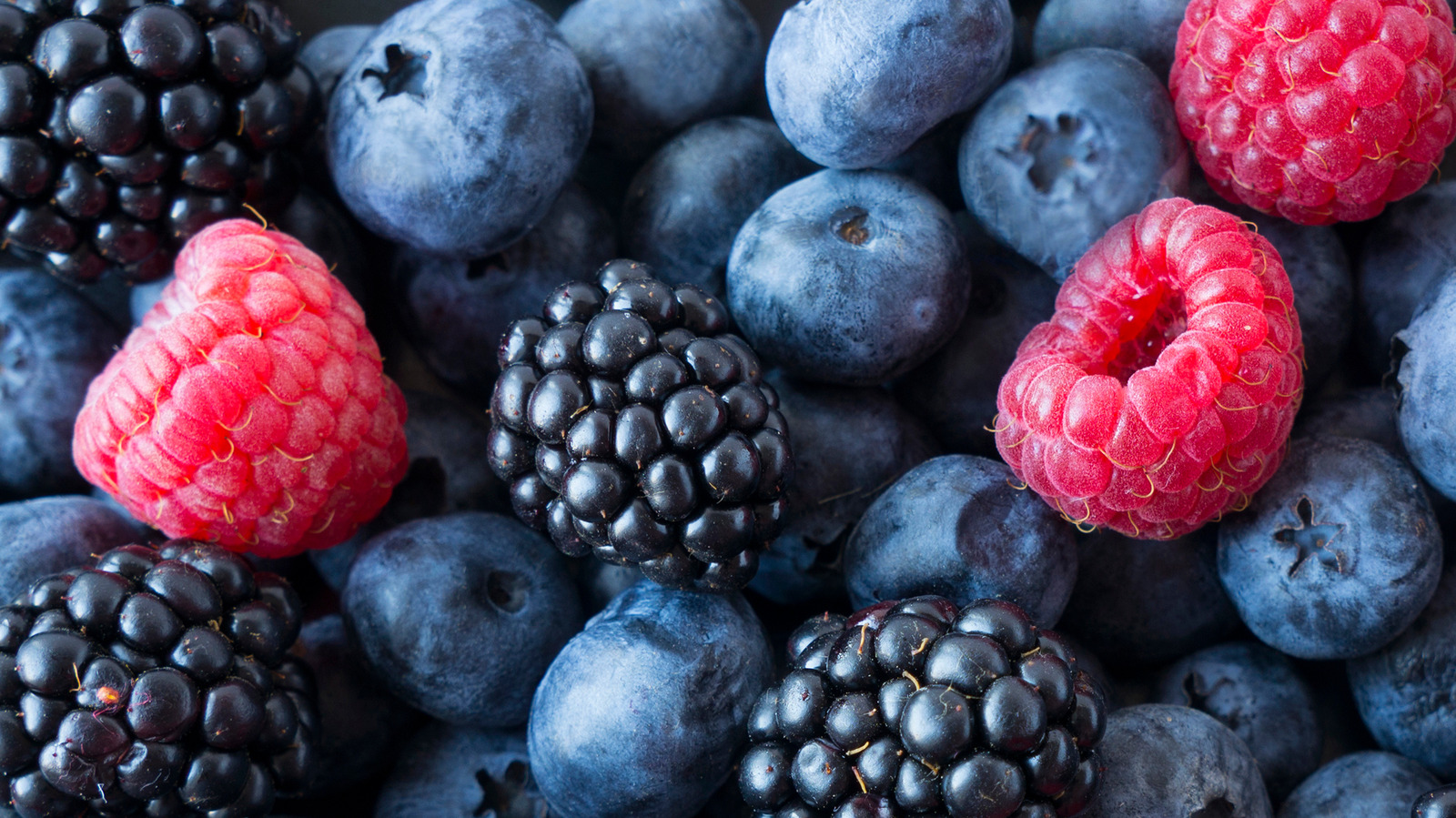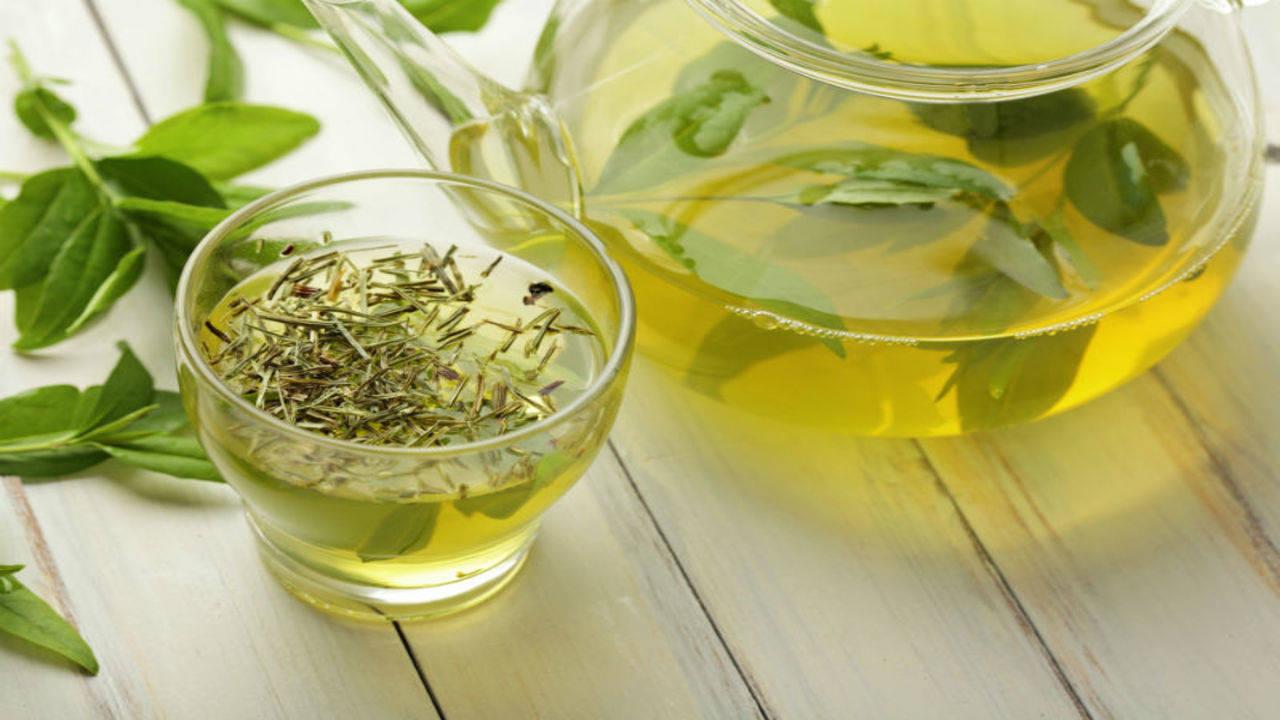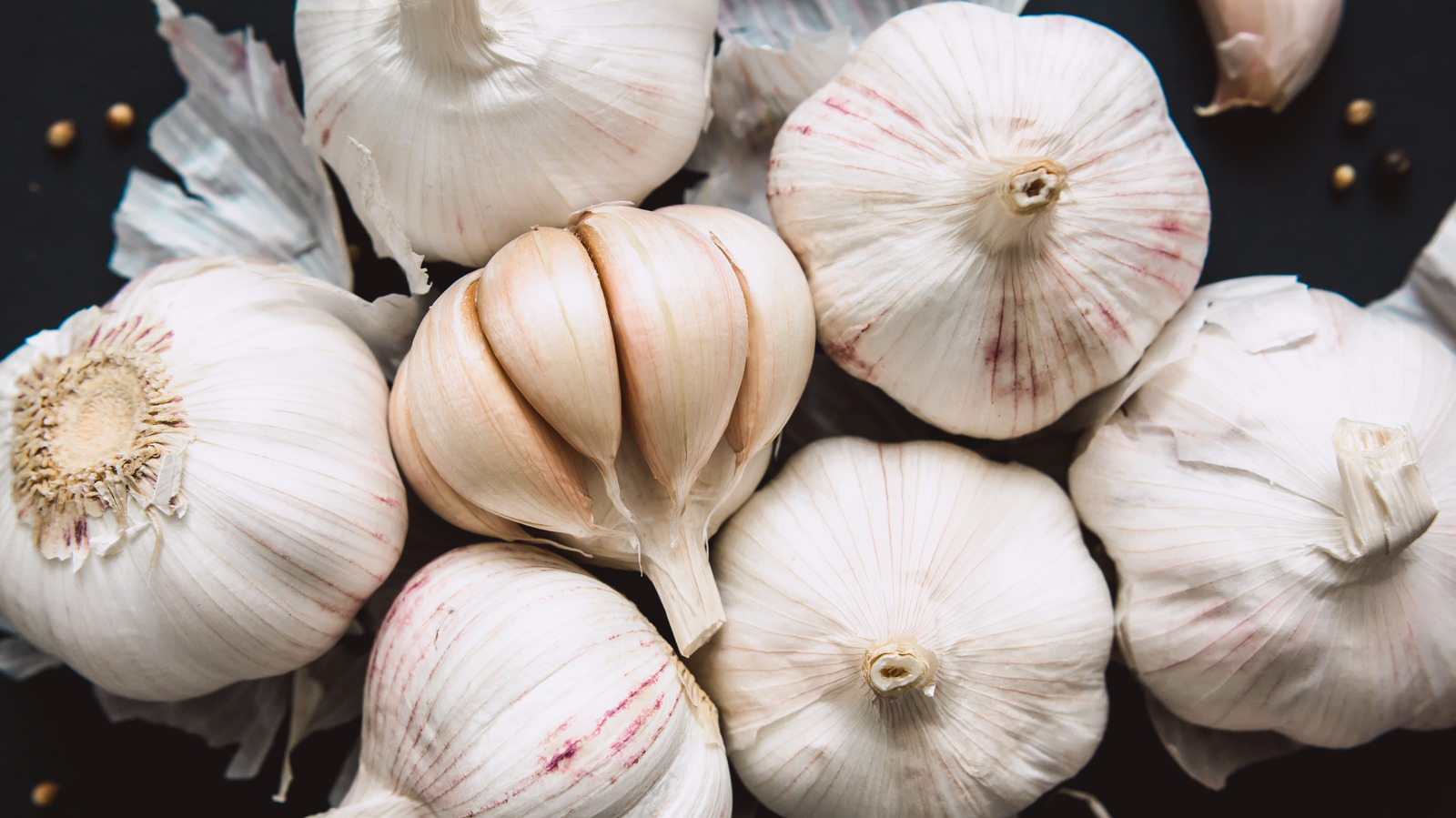Hello and welcome to this post on 10 Foods that are rich in antioxidants and their impact on longevity. Antioxidants are compounds found in many foods that can help protect your body's cells from damage caused by harmful molecules known as free radicals. These free radicals can contribute to the development of many diseases, including cancer, diabetes, and heart disease. Eating a diet rich in antioxidants may help reduce the risk of these diseases and promote longevity. In this post, we will discuss 10 foods that are particularly rich in antioxidants and how they can impact your health and lifespan. So, let's dive in and learn about these amazing foods!
1, Berries.
Berries are an excellent source of antioxidants, particularly a type of antioxidant called anthocyanins, which give them their bright and vibrant colors. Anthocyanins are powerful antioxidants that help protect cells from damage caused by free radicals, which are harmful molecules that can contribute to the development of chronic diseases, such as cancer and heart disease.
But that's not all. Studies have shown that anthocyanins may also have anti-inflammatory properties that can help reduce inflammation in the body. Chronic inflammation is linked to numerous health problems, including arthritis, diabetes, and heart disease. By reducing inflammation, anthocyanins can help lower the risk of these diseases and improve overall health.
Additionally, research suggests that the consumption of berries and their high antioxidant content may also benefit brain function. A study published in the Annals of Neurology found that consuming berries, particularly blueberries and strawberries, was associated with slower cognitive decline in older adults. Other studies have suggested that the antioxidants in berries may help improve memory and cognitive function.
So, not only are berries delicious, but they are also incredibly nutritious. Including them in your diet can provide you with numerous health benefits, from reducing inflammation to improving brain function. So next time you're looking for a healthy and tasty snack, grab a handful of berries and enjoy the many benefits they have to offer.
2, Dark Chocolate.
Dark chocolate is a delicious and healthy treat that is loaded with antioxidants, specifically flavonoids. Flavonoids are a type of antioxidant that has been linked to numerous health benefits, including improved heart health.
Research suggests that consuming dark chocolate may help lower blood pressure and improve blood flow by promoting the production of nitric oxide in the body. Nitric oxide is a compound that helps to relax and widen blood vessels, improving blood flow and reducing the risk of heart disease.
In fact, a study published in the Journal of the American Medical Association found that consuming a small amount of dark chocolate daily was associated with a significant reduction in blood pressure in individuals with high blood pressure. Other studies have also shown that regular consumption of dark chocolate may help lower LDL cholesterol levels, which is the "bad" cholesterol that can increase the risk of heart disease.
However, it is important to note that not all chocolate is created equal. To reap the health benefits of dark chocolate, look for varieties that contain at least 70% cocoa solids and consume in moderation, as it is still high in calories and fat.
So, if you have a sweet tooth and want to indulge in a treat that is also good for your heart, reach for a small piece of dark chocolate and enjoy the many benefits it has to offer.
3, Red Wine.
Red wine contains resveratrol, which is a type of polyphenol and antioxidant that has been linked to numerous health benefits, including improved heart health.
Studies have found that resveratrol has anti-inflammatory properties, which can help reduce inflammation in the body. Chronic inflammation is linked to numerous health problems, including heart disease, cancer, and diabetes. By reducing inflammation, resveratrol can help lower the risk of these diseases.
In addition to its anti-inflammatory properties, resveratrol has also been shown to have a positive impact on heart health. It may help improve blood vessel function and reduce the risk of blood clots, which can lead to heart attacks and strokes. Research suggests that moderate consumption of red wine, which is a rich source of resveratrol, may help lower the risk of heart disease and improve overall cardiovascular health.
However, it's important to note that excessive consumption of alcohol can have negative effects on health and increase the risk of various health problems, including liver disease, certain cancers, and addiction. Therefore, it's important to consume red wine in moderation, and consult with a healthcare professional if you have any concerns about alcohol consumption.
Overall, red wine can be a tasty and enjoyable way to get the benefits of resveratrol, but moderation is key to reaping its potential health benefits.
4, Green Tea.
Green tea is a popular beverage that is loaded with antioxidants, specifically a type of antioxidant called catechins. Catechins are a group of flavonoids that have been linked to numerous health benefits, including reduced risk of heart disease, stroke, and certain cancers.
Research has shown that catechins in green tea can help lower LDL (the "bad" cholesterol) and total cholesterol levels, which can contribute to a reduced risk of heart disease. Additionally, green tea has been found to help lower blood pressure and improve blood vessel function.
Catechins in green tea may also have a protective effect against certain types of cancer, such as breast, prostate, and colorectal cancer. They work by inhibiting the growth and spread of cancer cells and reducing oxidative stress and inflammation in the body.
Other potential health benefits of green tea catechins include improved brain function, increased fat burning, and reduced risk of type 2 diabetes.
It's important to note that while green tea is a healthy beverage, the health benefits associated with its catechin content are likely to be modest. Drinking green tea alone is unlikely to be a cure-all for health problems, and it should be consumed as part of a balanced diet and healthy lifestyle.
So, if you enjoy the taste of green tea, you can feel good about adding it to your daily routine as a healthy beverage choice.
5, Tomatoes.
Tomatoes are a nutritious and delicious fruit that are rich in lycopene, a type of antioxidant that has been linked to various health benefits.
One of the most well-known benefits of lycopene is its potential to reduce the risk of prostate cancer. Studies have shown that men who consume high amounts of lycopene, either through tomato-based products or supplements, have a lower risk of developing prostate cancer.
In addition to its potential cancer-fighting properties, lycopene may also have a positive impact on heart health. Research suggests that lycopene may help lower LDL (the "bad" cholesterol) levels and reduce the risk of heart disease.
Furthermore, tomatoes are a rich source of other antioxidants, such as vitamin C and beta-carotene, which can help protect against cell damage and promote overall health.
It's worth noting that while tomatoes are a nutritious food, the health benefits associated with lycopene are likely to be modest. Eating tomatoes alone is unlikely to be a cure-all for health problems, and they should be consumed as part of a balanced diet and healthy lifestyle.
Overall, adding tomatoes to your diet can be a delicious and healthy way to boost your intake of antioxidants and potentially reduce the risk of certain diseases.
6, Nuts.
Nuts, including almonds, walnuts, and pistachios, are packed with antioxidants, particularly vitamin E, which has been linked to numerous health benefits.
Vitamin E is a fat-soluble antioxidant that helps protect cells from damage caused by harmful molecules called free radicals. Studies have found that consuming vitamin E-rich foods, such as nuts, may help reduce the risk of heart disease by reducing LDL (the "bad" cholesterol) oxidation and improving overall cholesterol levels.
In addition to their vitamin E content, nuts are also rich in other antioxidants, such as flavonoids and phenolic acids, which can help reduce inflammation and protect against cell damage.
Moreover, nuts are a good source of healthy fats, fiber, and protein, which can help promote feelings of fullness and may contribute to weight management.
However, it's important to note that nuts are also high in calories, so portion control is key when incorporating them into your diet. It's best to opt for unsalted varieties and consume them in moderation as part of a healthy diet.
Overall, adding a variety of nuts to your diet can be a tasty and nutritious way to boost your antioxidant intake and potentially reduce the risk of heart disease.
7, Spinach.
Spinach is a nutrient-packed leafy green that is loaded with antioxidants, such as vitamin C and beta-carotene, as well as other important nutrients, including iron, calcium, and folate.
Vitamin C is a water-soluble antioxidant that helps protect cells from damage caused by free radicals. It has been linked to numerous health benefits, including reduced risk of heart disease and certain cancers.
Beta-carotene is a type of antioxidant that is converted into vitamin A in the body. It has been associated with a reduced risk of certain cancers, including lung cancer, and may also help protect against heart disease.
Moreover, spinach is a rich source of other antioxidants, such as flavonoids and carotenoids, which can help reduce inflammation and protect against cell damage.
Additionally, spinach is low in calories and high in fiber, which can help promote feelings of fullness and contribute to weight management.
It's worth noting that while spinach is a healthy food, the health benefits associated with its antioxidant content are likely to be modest. Eating spinach alone is unlikely to be a cure-all for health problems, and it should be consumed as part of a balanced diet and healthy lifestyle.
Overall, adding spinach to your diet can be a tasty and nutritious way to boost your antioxidant intake and potentially reduce the risk of certain diseases.
8, Kale.
Kale is a cruciferous vegetable that is packed with a wide range of vitamins, minerals, and antioxidants, making it a nutritious addition to any diet.
One of the main types of antioxidants found in kale is flavonoids, which have been linked to numerous health benefits. Flavonoids are a type of polyphenol that have anti-inflammatory and antioxidant properties, and may help reduce the risk of cancer, heart disease, and other chronic diseases.
In addition to its flavonoid content, kale is also a rich source of other important antioxidants, such as vitamin C and beta-carotene. Vitamin C helps protect cells from damage caused by free radicals, and has been linked to a reduced risk of heart disease and certain cancers. Beta-carotene is converted into vitamin A in the body, and may help protect against certain types of cancer.
Furthermore, kale is a good source of fiber, which can help promote feelings of fullness and contribute to weight management.
It's worth noting that while kale is a nutritious food, the health benefits associated with its antioxidant content are likely to be modest. Eating kale alone is unlikely to be a cure-all for health problems, and it should be consumed as part of a balanced diet and healthy lifestyle.
Overall, incorporating kale into your diet can be a delicious and nutritious way to boost your antioxidant intake and potentially reduce the risk of certain diseases.
9, Garlic.
Garlic is a common culinary ingredient that has been used for its medicinal properties for centuries. It contains a variety of beneficial compounds, including antioxidants such as allicin, which can help reduce inflammation and improve heart health.
Allicin is a sulfur-containing compound that is produced when garlic is chopped or crushed. It has been shown to have anti-inflammatory and antioxidant properties, which may help protect against oxidative stress and reduce the risk of certain chronic diseases, including heart disease.
In addition to its antioxidant content, garlic is also a rich source of other important nutrients, such as vitamin C, vitamin B6, and manganese. Vitamin C helps protect cells from damage caused by free radicals, and has been linked to a reduced risk of heart disease and certain cancers. Vitamin B6 is involved in the production of neurotransmitters and has been linked to a reduced risk of depression and cognitive decline. Manganese is important for bone health and wound healing.
Moreover, garlic is low in calories and has been shown to have antimicrobial properties, making it a popular natural remedy for fighting infections and supporting immune health.
It's worth noting that while garlic is a healthy food, the health benefits associated with its antioxidant content are likely to be modest. Eating garlic alone is unlikely to be a cure-all for health problems, and it should be consumed as part of a balanced diet and healthy lifestyle.
Overall, incorporating garlic into your diet can be a tasty and nutritious way to boost your antioxidant intake and potentially reduce the risk of certain diseases.
10, Turmeric.
Turmeric is a spice that is commonly used in Indian and Middle Eastern cuisine, and it contains a powerful antioxidant called curcumin. Curcumin has been studied extensively for its health benefits, particularly its ability to reduce inflammation and improve brain function.
Inflammation is a normal immune response to injury or infection, but chronic inflammation is a contributing factor to many chronic diseases, including heart disease, cancer, and Alzheimer's disease. Curcumin has been shown to have anti-inflammatory properties, and may help reduce the risk of these diseases by decreasing chronic inflammation.
Moreover, curcumin has been shown to have neuroprotective properties, and may help improve brain function and reduce the risk of neurodegenerative diseases such as Alzheimer's and Parkinson's disease. It does this by increasing the levels of brain-derived neurotrophic factor (BDNF), a growth hormone that is important for brain function and has been shown to be reduced in patients with Alzheimer's disease.
Additionally, turmeric is a good source of other important antioxidants, such as vitamin C and beta-carotene, which may help protect against oxidative stress and reduce the risk of certain diseases.
While turmeric is a healthy spice, it is important to note that the curcumin content in turmeric is relatively low, and may not be enough to provide significant health benefits on its own. Therefore, turmeric supplements or concentrated curcumin supplements may be necessary to achieve therapeutic doses.
Overall, incorporating turmeric into your diet or taking curcumin supplements can be a flavorful and nutritious way to boost your antioxidant intake and potentially reduce the risk of certain diseases.
Thank you for watching this post on 10 Foods that are rich in antioxidants and their impact on longevity. Including these foods in your diet can provide you with numerous health benefits and potentially increase your lifespan. By reducing oxidative stress and inflammation in the body, you can lower your risk of developing chronic diseases and improve your overall health. So, start incorporating these antioxidant-rich foods into your meals today and experience the benefits for yourself. Don't forget to like, share, and subscribe for more informative posts on health and wellness.

.jpeg)
:max_bytes(150000):strip_icc()/red-wine-blends-FT-MAG1116-2000-4f3c3e91bcd646ea8a21f2152746ef53.jpg)







Comments
Post a Comment